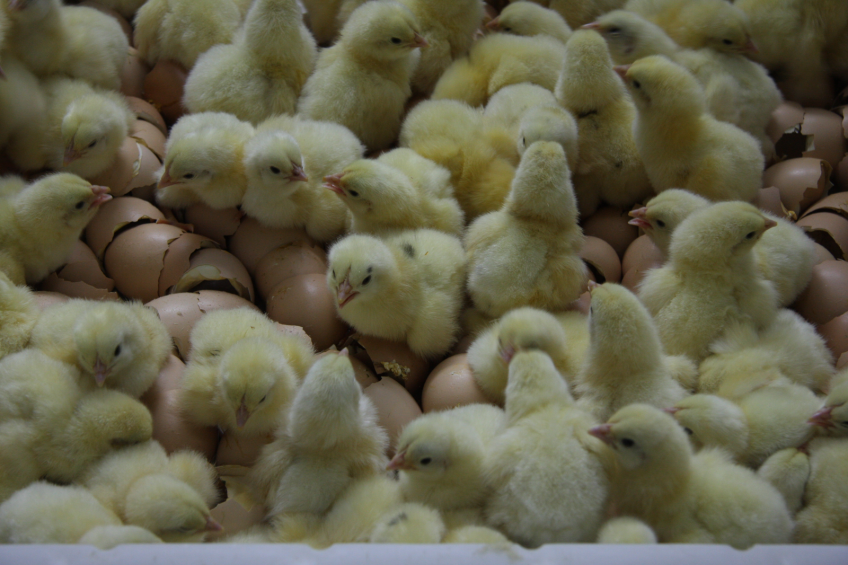Colonisation-inhibition protects against Salmonella

Broilers can be protected against Salmonella infection soon after hatching by administering a live Salmonella strain to day old chickens.
These colonisation-inhibition strains must be attenuated in a way that they are not persistently shed or persistently colonise the gut, while maintaining protective properties.
The University of Ghent in Belgium evaluated the safety and virulence of a Salmonella Enteritidis (ΔhilAssrAfliG) strain after oral administration to day old chickens and showed that this strain did not colonise the gut or internal organs persistently.
Furthermore, administration of this strain to day-old broiler chicks resulted in a significantly decreased faecal shedding and caecal and internal organ colonisation of a Salmonella Enteritidis challenge strain administered one day later using a seeder bird model. Similarly, a Salmonella Typhimurium strain (ΔhilAssrAfliG) was constructed and evaluated for use as a colonisation-inhibition strain.
Administration of this strain to day-old broiler chicks resulted in a strong decrease in faecal shedding and caecal and internal organ colonisation of a Salmonella Typhimurium challenge strain administered one day later. Concurrent administration of both strains showed that this colonisation-inhibition culture protects against infection by both Salmonella Enteritidis and Typhimurium, even shortly after hatching.
Consequently, these results indicate that colonisation-inhibition can be used to protect broilers against infection by several Salmonella serotypes.
[Source: W. de Cort, F. Haesebrouck, R. Ducatelle, F. van Immerseel, Ghent University, Ghent, Belgium
Proceedings of the XIVth European Poultry Conference, June 2014, Stavanger, Norway]













